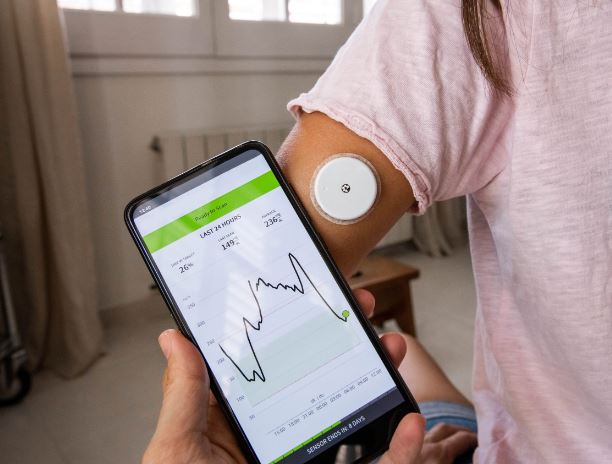The burden and cost of treating type 2 diabetes in the U.S. is substantial and growing, affecting over 38 million adults with rising rates in children and adolescents.
We spoke to Dr. David Kerr, a senior scientist in Sutter’s Center for Health Systems Research who studies diabetes and digital health tools. Dr. Kerr was recently selected to join a national working group tasked with developing new guidelines to help guide the future management of type 2 diabetes.

Dr. David Kerr, senior scientist at Sutter’s Center for Health Systems Research
Q: What does the future of type 2 diabetes management look like?
A: Type 2 diabetes should no longer be considered a single disease. This means the risks of developing this type of diabetes, the responses to therapies and the potential for serious complications are unique to each individual. New knowledge about the illness continues to emerge from novel digital health technologies, with a growing focus on the impact of social drivers of health and the identification of new biomarkers. With this new knowledge more personalized and lower-cost treatments are now possible. These will increasingly involve combinations of lifestyle changes as well as medications to help prevent and manage the disease while reducing the risk of long-term complications
Q: How is Sutter helping lead the future of diabetes care through research and digital health & innovation?
A: We conduct cutting-edge research on the use and scalability of digital health tools to reduce the burden of diabetes in the communities we serve. We are studying and continually improving programs designed to foster sustained “metabolic wellness” for our system’s patients and employees. In addition, as part of the Sutter Sync digital care program, Sutter Health is taking steps to use technology to improve outcomes for patients by adding digitally delivered care, beginning with hypertension and soon adding diabetes. This approach will help ensure patients can seamlessly access personalized care, closer to home.
Q: What role may digital technologies and AI play in the management and prevention of type 2 diabetes?
A: Wearable technologies such as continuous glucose monitors and fitness trackers generate enormous amounts of data in real time. Using our in-house experts in data science and leveraging information from electronic health records, we can combine and integrate this information responsibly with artificial intelligence (AI). In the near future, our AI systems – developed under robust governance and oversight to ensure they serve the best interests of our patients and our people – ideally will be able to build on solutions we’ve already helped make possible and to:
- Help identify individuals at increased risk of serious diseases like diabetes, earlier
- Support patients with chronic conditions to maintain wellness
- Help patients easily access personalized treatment right where they live, and
- Free up time for our clinicians to spend more of their day-to-day activities practicing good medicine.
AI may also dramatically increase Sutter Health’s potential to lead clinical research and innovation so our clinical service lines can offer state-of-the art treatments for common and complex illnesses. For example, AI can accurately and reliably identify individuals who may be suitable to participate in new clinical trials, including research to proactively prevent disease in at-risk individuals. AI can also capture and interpret the increasing amount of information that comes from wearable devices, helping clinicians choose treatments that are likely to be very effective.
Q: What advice would you give to individuals who have or are at risk for type 2 diabetes?
A: At-risk individuals include those who are obese, people with a family history of the illness and women planning pregnancy who are concerned about gestational diabetes. Using wearable devices such as continuous glucose monitors can help them work with their clinicians to tailor lifestyle interventions including the most appropriate food choices, the “dose” and timing of physical activity and potentially better sleep.
Q: What excites you most around the role research plays in the care of individuals with type 2 diabetes?
A: By using research to better understand the potential of digital health and AI, we can help bring patients new, personalized care solutions and offer clinicians strategies and tools to more efficiently deliver care.
For example: at Sutter Health we are already offering AI-assisted retinal imaging to help prevent diabetes-related vision loss in individuals who have type 2 diabetes. As AI and wearables become more accessible, we will see more personalized prescriptions for medicines as well as a new focus on lifestyle to improve self-efficacy.
We will soon be able to offer patients more personalized, AI-powered, proactive guidance on lifestyle interventions that help prevent the onset of disease. This will be like having an “on demand” lifestyle coach on your wrist or in your pocket.





